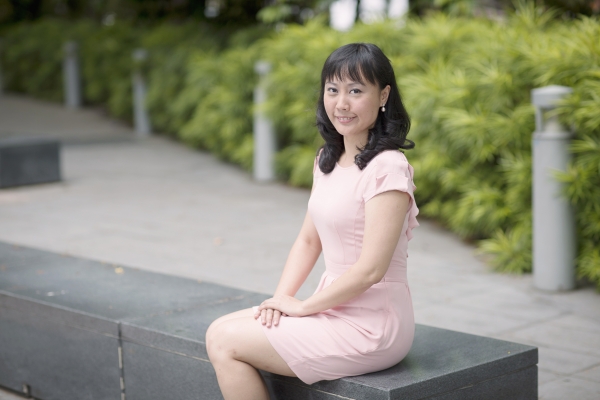
By Alvin Lee
SMU Office of Research & Tech Transfer – In the movie Crazy Rich Asians,the characters and plot portrayed aspects of wealthy Asian society that locals would find familiar. There is the family-controlled business empire headed by an all-powerful individual, which in this case is the matriarch Eleanor Young played by Michelle Yeo. There is the heir apparent, Nicholas, the movie’s male protagonist and Eleanor’s only child. And amidst the glamour of high society and dazzling wealth are the conflicting themes of duty, loyalty, and love that underscore Eleanor’s disapproval of Nicholas’s relationship with her Chinese-American girlfriend, Rachel.
While the movie finished with an obligatory happy Hollywood ending, conflict in real-life wealthy families in Singapore where the fictional Young family lives sometimes devolves into acrimony. But the bone of contention is usually not love, but property.
“Increasingly, we are seeing such family property disputes coming before the courts,” notes Yip Man, Associate Professor of Law at the SMU Yong Pung How School of Law. In a research article that was published in Legal Studies earlier this year, “Comparing family property disputes in English and Singapore law: ‘context is everything’”, Professor Yip pointed out differences in landmark cases in the two jurisdictions boiling down to different family paradigms.
Whereas English landmark cases are based on “the unmarried cohabitants paradigm” to ensure “a fair division of the family home upon the breakdown of these relationships”, in Singapore it is about “contests between children over their parents’ property which raised questions as to the parties’ true intentions and the legal techniques to determine that”.
Whose house is it?
Professor Yip, whose main research focus is Equity and Trusts, points out how the Asian concept of ‘family’ makes strict application of English-derived property law principles a challenge.
“Especially where wealthy families are concerned, Asians see the family home and wealth as being shared across the family,” observes Professor Yip, who notes the ‘shared home’ mentality among Singapore families from those in government-subsidised HDB housing to “very wealthy founders of businesses”. “They see that the property is owned by the entire family, ultimately controlled by the patriarch, matriarch, or the head of the family. And when they transfer the property to their children, they always think that they can have it back.”
She adds: “The question needs to be asked, ‘Did he really intend a gift? Or did he just transferred without basically giving away what we call the beneficial interest?’" Beneficial interest, Professor Yip explains, refers to the right to the ultimate benefit of the property. In the scenario of a patriarch or matriarch transferring only legal ownership to a child, the child would be the legal owner within the strict code of the law but he holds the property on trust for the benefit of the parent. As a result, the child must account to the parent (the beneficiary) profits that are derived from the use or sale of the property.
This may happen, Professor Yip says, when families try to keep the family home from creditors by transferring it from “mother to brother to sister-in-law” pursuant to a family compact. There is little active intention of making a gift of the property and the pertinent question is how should the law treat such a situation of transfer, Professor Yip says.
On top of that, there are other scenarios where application of property law is less than straightforward.
“Under current law, when we have a transfer of property from husband to wife, there's a presumption that it's a gift, but not conversely. How do we explain that?” Professor Yip elaborates. “And when you look at the family context, and we're applying property law principles, to what extent do we then take into account family dynamics? How do courts go about explaining that in the legal principles, but without saying that this is now in the terrain of family law, and not property law?
“How do you interpret such behaviour? Obviously, this hard-nosed property law is built based on an English society because we basically inherited these principles from English law. But when applied in the Asian context, we keep seeing that it is not always a good match.”
She concludes: “More fundamentally, in family property disputes, the application of property principles are shaping our understanding of family relations and norms. The bitter disputes also tell us a lot about the family members’ divergent interests and behaviour, especially in the context of intergenerational transfer of wealth.”
Crazy rich disputes
Professor Yip, who is also a V3 Group Fellow in Family Entrepreneurship, recalls how the buzz around Crazy Rich Asiansinspired the theme of Trusts and Wealth Management Conference 2019: “Asian wealth and the Global context”, a conference which she co-convened. Her co-authored conference paper reviews recent bitter family disputes that have come before the Singapore courts.
“What we really wanted to review in the research were some of these ugly disputes that we're seeing, what is giving rise to these disputes, and how we can actually prevent these disputes from arising,” she explains. “Because if the families go to the courtroom, nobody wins.”
By detailing five paradigmatic cases of wealthy Singaporean families that have brought their disputes to the courts, Professor Yip seeks to tell the cautionary tale of two messages: heads of wealthy households over-estimating their enduring control of the family and business, and the inadequacies of Western-originated legal principles in resolving Asian family wealth disputes.
Professor Yip and her co-author, SMU Professor of Law Tang Hang Wu, are currently working out the finer details of a book chapter on the topic. One key issue likely to be explored is succession planning and educating Asian business founders and their family members on having open and transparent communications about these matters, as well as putting them in black and white.
“If you believe that these principles are the ones that we should apply, then, you need to do the work upstream, which is basically ensuring that these Asian businessmen and their family members are properly educated on the practical steps that can be taken to minimise disputes,” Professor Yip says. “There could be planned documents drafted, like the family constitution, wills and shareholder agreements, to detail how they handle succession, both of the wealth, as well as the management of the family business.
“There are a lot of facets to look at. It also depends on, ‘What are the objectives of the founder? Are the same objectives also shared by the second generation? What are the core family values and goals?’”
Professor Yip’s co-authored chapter, ‘Crazy Rich Families in Singapore: A Cautionary Tale’ will be published in a book by Cambridge University Press titled Trusts and Private Wealth Management: Developments and Directions (edited by Richard Nolan, Tang Hang Wu and Yip Man).
Back to Research@SMU Aug 2021 Issue
See More News
Want to see more of SMU Research?
Sign up for Research@SMU e-newslettter to know more about our research and research-related events!
If you would like to remove yourself from all our mailing list, please visit https://eservices.smu.edu.sg/internet/DNC/Default.aspx

